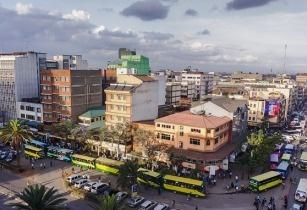Benin’s economy grew by 6.7 per cent in 2018 driven by strong agricultural production and port activity, according to the International Monetary Fund (IMF)
An IMF staff team led by Luc Eyraud visited Cotonou from 25 April to 6 May 2019 to discuss on the 2019 Article IV Consultation and the fourth review of the three-year economic and financial programme supported by the IMF under the extended credit facility (ECF) arrangement with the Republic of Benin.
The discussions covered recent economic, fiscal and financial developments, as well as policies needed to foster high and inclusive growth, preserve debt sustainability, enhance governance and promote financial stability.
At the end of the visit, Eyraud said, “Inflation remained subdued at about one per cent, well below the three per cent regional ceiling of the Western Africa Economic and Monetary Union (WAEMU). The current account deficit improved significantly last year reflecting a boom in agricultural exports. The 2018 fiscal deficit stood at four per cent of GDP compared to the program target of 4.7 per cent of GDP.”
“The medium-term outlook continues to be favourable, with economic growth projected at 6.7 per cent over 2019-2024, driven by high agriculture production, rising private investment and the development of new sectors such as tourism and the digital economy.”
“Performance under the IMF-supported program was satisfactory in 2018. All program monitoring indicators (quantitative and structural) at end-December 2018 were met. Sound policies implemented by the authorities in the context of the program and the country’s good economic performance have supported a successful Eurobond issuance in March 2019.”
“Benin has high medium-term growth potential. To realize this potential, IMF staff emphasized the importance of speeding up reforms aimed at improving the business environment and infrastructure, strengthening the governance framework, diversifying the economy, promoting high-quality education and health, and addressing the vulnerabilities of the banking sector, in particular, the weak bank profitability. The mission noted recent improvements in these areas and encouraged the government to pursue their efforts.”
“The authorities and the IMF staff agreed on the need to continue to increase government revenues. Greater revenue mobilization is essential to finance transfers to the poor and social insurance programs, such as the new health insurance system, which has recently entered in its pilot phase. Higher revenues will also create space to finance the infrastructure projects of the Government Action Programme.”
“IMF staff welcomed the projected decline in public debt ratio in 2019. Maintaining debt on a firm downward path will require continuing the prudent borrowing strategy and strengthening the proactive and modernized debt management. The Eurobond paves the way for access to non-concessional international bond markets in the future. This will contribute to the diversification of the financing structure and create opportunities for extending the debt maturity. Nevertheless, it may also generate vulnerabilities that the authorities are determined to assess and mitigate.”





















